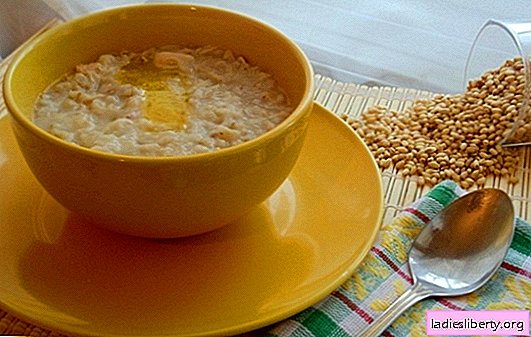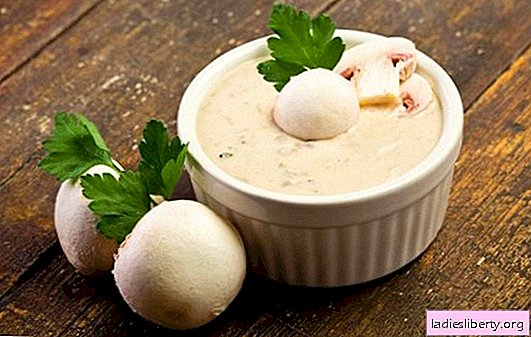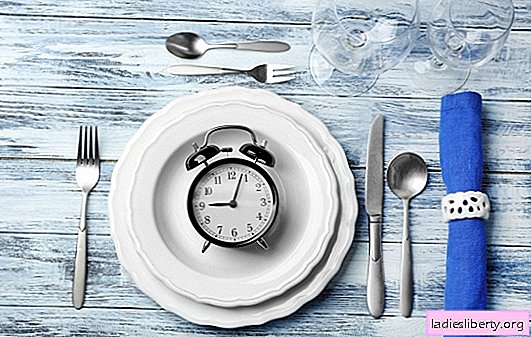
In the minds of the average person, not particularly committed to the principles of proper nutrition, soup is considered an integral part of lunch. It is believed that the first dish should be eaten every day, without options. Is this true in terms of dietetics? The medical approach is much more variable.
If we consider the soup as a dish from the perspective of a nutritionist, what can we say about it? This is a multi-component first dish based on chicken, meat, fish broth with the addition of vegetables (or based on vegetable broth, but less commonly), spices and, if necessary, other products. Does it carry any payload, does it affect the body beneficially? In a sense, yes, in another, no.
The truth is that it is possible to do without soup as a first course for lunch or to eat it not every day or even every other day. A complete rejection of soups is also possible, it will not affect critically the state of health. There is an opinion about the benefits of soups and a grain of truth. In this case, what are the misconceptions based on and how to eat soup in order to eliminate harm and achieve benefits?
Typical misconceptions about soups
A lot of delusions have taken root in people's minds. We need to briefly go through them:
- Soup promotes digestion. In a sense, yes. But not every soup can normalize digestion. Obviously overloaded with meat, on a fatty broth, the first dish with a bunch of spices and pasta will not help improve digestion. On the contrary, it will take more than one hour to digest it, and there will be enough calories for two.
- Soup helps prevent gastritis and stomach problems. This is also not true. It all depends on the characteristics of the body of a particular person. There are many cases when the patient’s digestive tract reacted to saturated meat broths as an irritant. Therefore, again, it depends on the composition of the first course.
- The soup is well nourishing and it makes you want to eat less. And again, you can return to the same thing: soup, strife. The presence of fats and vegetables in the system allows you to saturate the body and eliminate the feeling of hunger for several hours. Vegetable broths are not able to fully cover the needs of the body, so the issue is debatable. It also depends on the nature of daily activity and the individual need for caloric intake.
- Without soup, there can be no proper diet. It is quite possible to do without soups as a first dish, if you correctly calculate the daily requirements for the amount of protein, fat, carbohydrates.
Why can you eat soup every day?
Soup really has a number of useful properties.
- First of all, warm (but not hot) food is better absorbed. Therefore, time for digestion is needed less.
- A properly selected set of products allows you to partially cover the body's need for nutrients. Therefore, you can reduce the number of meals, the volume of the next portion. In addition, the intensity of hunger will be lower, and therefore food breakdowns, snacks will not be required.
- Cooked vegetables give vitamins, which are easier to absorb in the form of a solution, less stress on the body.
All of the above applies only to balanced soups. Even better, if the recipe, the composition corresponds to the individual characteristics of the person.
In which cases soup will not be useful
Everything is individual here. We can definitely say only about certain taboos:
- Do not overload the soup with meat, obviously heavy ingredients (for example, pasta) or components that are poorly digested by the person himself. It is worth taking into account the compatibility of products.
- With gastritis or diseases of the digestive tract in the acute and chronic phases it is recommended to carefully select products. You can’t approach cooking thoughtlessly. It will not be superfluous to consult a gastroenterologist.
What soups are recommended to cook and eat
When choosing a soup, you need to take into account the needs of the body for calories (if the nature of the activity involves the rapid burning of energy in large volumes, preference is given to saturated meat broths), state of health, tolerance of the components.
There are no strict universal restrictions, and cannot be. Unless presented above. The compatibility of the ingredients, the potential benefits are important. Do not forget about the taste.
Disruptions are possible within the framework of the diet, and if we talk about changing the very principles of nutrition, switching to a new diet, they can not be avoided at all. The same type, fresh and unpleasant soup will get bored very quickly.
When cooking, it is recommended to minimize the amount of salt and spices. On the one hand, they overload and irritate the digestive tract, which can provoke an increase in gastritis and other inflammatory processes. And on the other, they cause fluid retention in the body. This is an extra load on the heart, kidneys. Everything should be in moderation.
How to organize proper nutrition?
This question is best organized by a dietitian. If it is possible to consult with a nutrition specialist, it makes sense to do this and develop an individual diet. Fully or partially.
Otherwise, it is recommended to adhere to the universal principle. Nutrition within the framework of acceptable products can be determined independently. Therefore, whether or not soup is a matter of individual choice.
If the patient prefers vegetable salads, lean meat with a vegetable side dish - these dishes may well replace soups.
In the end, a liquid first course is a tribute to traditional nutrition, following the experience of parents, grandparents, which, by misunderstanding, has become an axiom.
The main thing is to cover the body's need for nutrients. How to do this is a matter of preference.
Soup as a first course is just one of many options. This way of eating is far from the only and especially not the only true one. The issue is resolved individually. It is better if there is an opportunity to consult with a nutritionist on the preparation of the diet. But you can cope on your own.











